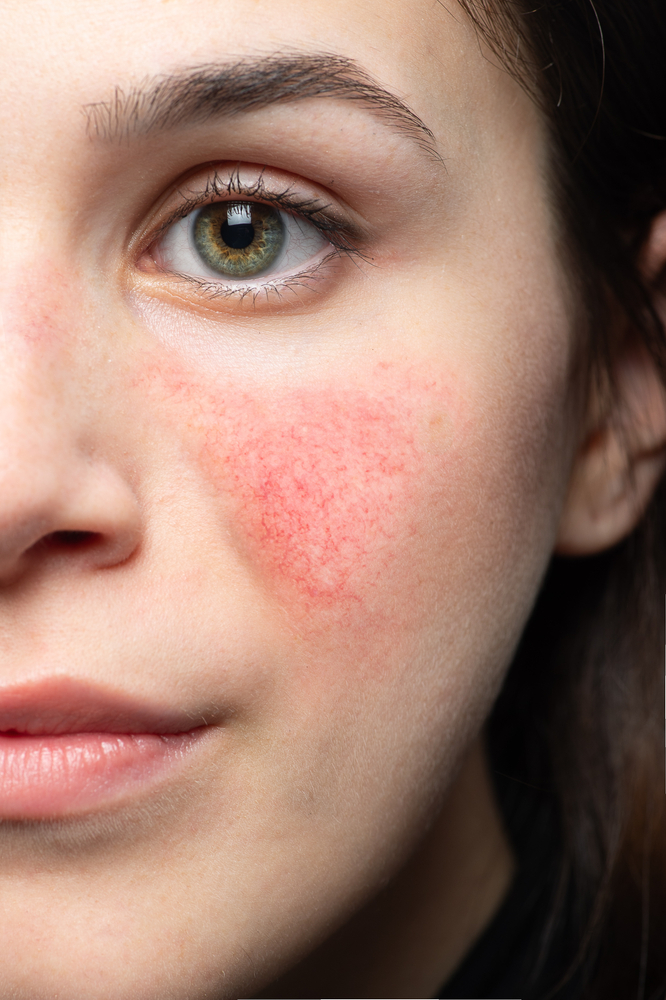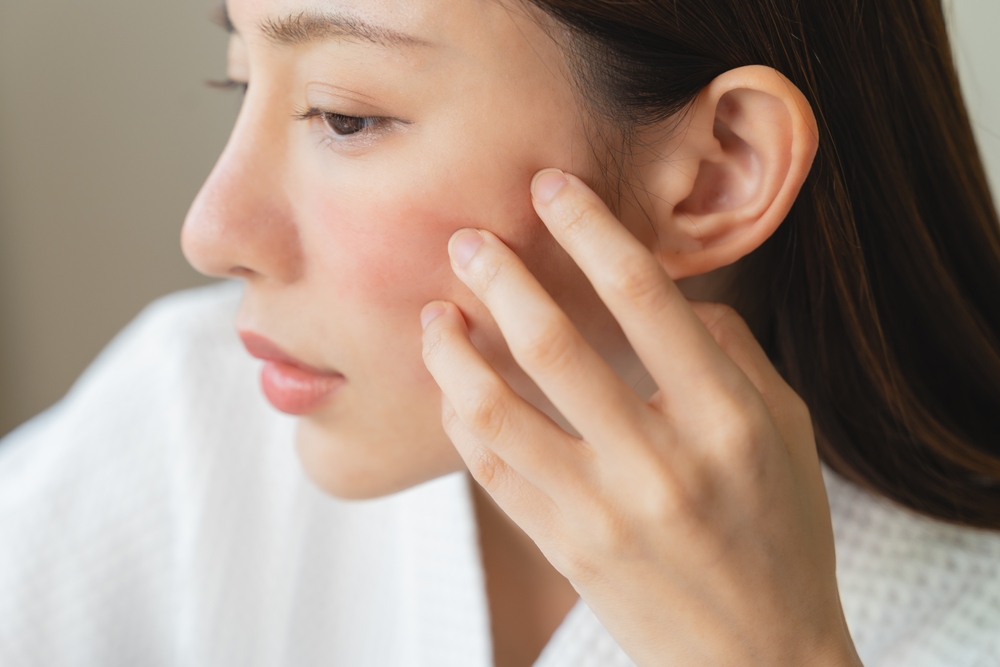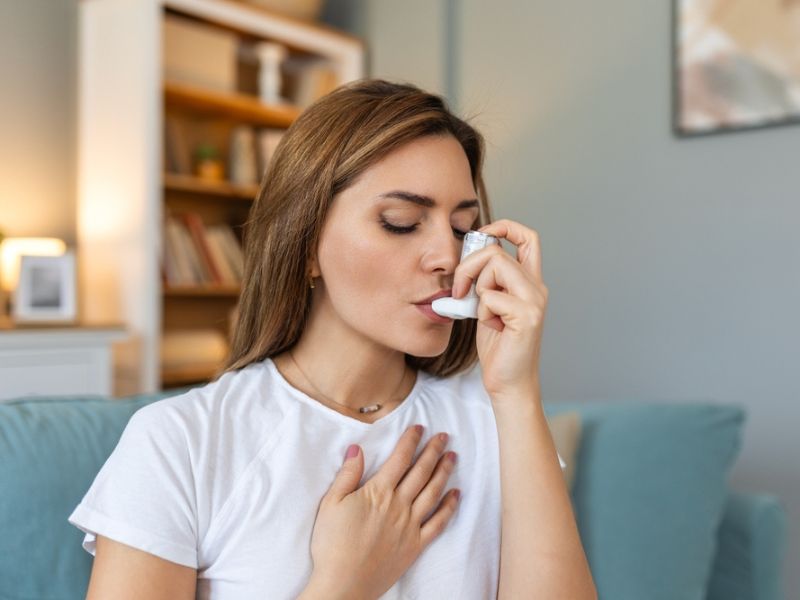It’s possible for adults to notice allergic reactions to alcoholic beverages, even if they’ve never had issues before. Though true alcohol allergies are rare, they still occur and can cause severe symptoms like rashes, trouble breathing, stomach cramps, collapse, or anaphylaxis.
Penn Medicine Becker ENT & Allergy’s nationally recognized allergy specialists bring deep expertise in identifying triggers and advising on care for late-onset reactions. Get in touch by visiting one of our more than 17 offices.

According to The American Academy of Allergy, Asthma & Immunology, True alcohol allergies are quite rare, under 1% of the global population.
Can you become allergic to alcohol later in life?
Yes, it’s possible to react to alcohol even if you never had a problem before.
Most of the time it’s not a “true allergy” but more of an intolerance or sensitivity. This can show up as things like flushing, headaches, feeling sick, or a racing heartbeat after drinking. If new symptoms show up, it’s smart to check with a doctor.
Why it can happen later
Allergy vs Intolerance
What to do:
Can you be allergic to vodka?
Yes, you can be allergic to alcohol or to ingredients in vodka, though a true allergy to alcohol itself is rare.
More often, people have intolerance, which means their body struggles to break down alcohol, or they react to things in the vodka like grains, sulfites, or added flavorings. Symptoms can include hives, flushing, nausea, stomach pain, or even trouble breathing.
Symptoms

Causes of reactions:
What to do:
Avoid the drink that causes issues, talk to a doctor or allergist, and in rare cases of severe reaction, carry an epinephrine injector.
Can you be allergic to wine?
More often, people react to compounds in wine such as sulfites, histamines, tannins, or proteins from grapes and yeast. These can lead to flushing, headaches, rashes, stuffy nose, or stomach problems.
Common triggers
Symptoms

True allergy vs intolerance
What to do:
If you react, see a doctor or allergist. They can test whether it’s a true allergy or intolerance.
Can you get a rash from alcohol?
Yes, alcohol can cause rashes.
This may be from alcohol intolerance, an allergy to something in the drink, or because alcohol worsens an existing skin condition. Rashes can look like flushing, hives, red itchy patches, or dry, flaky skin.
Causes of alcohol-related rashes

Symptoms to look for
When to see a doctor
Always check with a doctor if you get new rashes from drinking. Seek urgent help if you also have swelling, trouble breathing, dizziness, or fainting.
What Is an Alcohol Allergy?
An alcohol allergy occurs when the immune system mistakenly identifies alcohol as a harmful substance, triggering an allergic reaction. This reaction involves the production of allergy-specific antibodies. Common allergens in alcoholic beverages that can cause such reactions are barley, hops, yeast, rye, wheat, gluten, and sulfites.
These allergens can be present in various types of alcohol, so it is essential for individuals with an alcohol allergy to carefully read beverage labels and understand the ingredients. Apart from the usual triggers, you might also be affected by other ingredients—like leftovers from the fermentation process, artificial fruit flavors, or even seafood proteins—that can set off allergic reactions. Keep an eye out for these possible culprits to reduce the risk of unwanted symptoms.
How is Alcohol Allergy Different from Alcohol Intolerance?
An allergy to alcohol occurs if your immune system responds negatively to alcohol, bringing signs such as hives, swelling, or difficulty with breathing. Alcohol intolerance, however, is present if your body has issues breaking down alcohol as it should. This is most often because of one’s genetics. It can cause unpleasant reactions, such as flushing or feeling sick.
Sometimes, what looks like intolerance might be a reaction to specific ingredients, such as chemicals, grains, or preservatives in the drink. Common signs of alcohol intolerance include flushed skin, hives, worsened asthma, stuffy nose, low blood pressure, nausea, vomiting, and diarrhea.

Not sure if alcohol is making you feel off?
Contact the expert allergists at Penn Medicine Becker ENT & Allergy. We’re here to provide answers, care, and lasting relief.
What Are the Symptoms of Alcohol Allergy and Intolerance?

The symptoms of an alcohol allergy can vary widely, ranging from mild intolerances to severe, dangerous allergic reactions. On the other hand, symptoms of alcohol intolerance, a more common condition, can be uncomfortable and sometimes severe.
Symptoms of Alcohol Allergy
Symptoms of Alcohol Intolerance
What Risk Factors Can Lead to Alcohol Allergy Later in Life?
Certain factors can increase the risk of developing an allergy to alcohol later in life. These factors include age, genetic predisposition, pre-existing health conditions, and excessive alcohol consumption.
Individuals of Asian descent, those with asthma or hay fever, or those with allergies to grains or other foods are at higher risk for alcohol intolerance.
Age Group at Higher Risk
Although an alcohol allergy can start at any age, certain groups face a higher chance of developing one. If you’re a young adult who drinks heavily, watch for warning signs like facial redness, itchy skin bumps, or an upset stomach. Many people between 20 and 40 notice more alcohol-related issues because of heavier drinking patterns.
As you get older, you may suddenly find yourself more sensitive to alcohol if your body produces less of the enzyme that helps break it down. Researchers are still examining which ages are most vulnerable and why these allergies and intolerances happen.
Noticing unusual reactions to alcohol? Contact us for expert guidance today!

Genetic Predisposition
Your genes can play a major role in whether you develop an alcohol allergy or intolerance. Many East Asians face a higher chance of alcohol intolerance because of reduced ALDH2 enzyme levels. According to a Cedars-Sinai piece by Nikolas Charles, around 30%-50% of this population experiences these reactions, often called “Asian flush” or “Asian glow.” This enzyme helps break down harmful substances in alcohol.
Key points about this process include:
- Enzyme efficiency: Individuals with a fully active ALDH2 enzyme can metabolize alcohol efficiently, reducing the likelihood of adverse reactions.
- Deficiency Effects: Those with an ALDH2 deficiency are more prone to experience symptoms like facial flushing, nausea, and rapid heartbeat after consuming alcohol.

Experiencing alcohol sensitivity? Our experts can help—contact us for answers today!
Pre-existing Health Conditions
Certain medical conditions can exacerbate alcohol intolerance. These include:
- Asthma: People with asthma may experience worsening of their symptoms after consuming alcohol.
- Allergic Rhinitis: This condition can lead to an increased sensitivity to alcohol.
- Hodgkin’s Lymphoma: Patients with this type of cancer may develop alcohol intolerance.
- Enzyme Deficiency: Some people lack other enzymes necessary for alcohol metabolism, leading to similar symptoms.
Health conditions can worsen alcohol intolerance. Penn Medicine, Becker, and allergy specialists can help—reach out today!

Excessive Alcohol Consumption
Excessive alcohol consumption poses not only the risk of developing an alcohol allergy but also a myriad of other health complications. These complications can vary in severity, ranging from mild intolerances to more severe allergies and other adverse effects on the body. It is essential for individuals to be mindful of their alcohol intake and its potential impact on their health.
Practicing moderation and being aware of any adverse reactions to alcohol can help individuals make informed choices about their alcohol consumption and overall well-being.
Your health comes first. If alcohol is causing unexpected reactions, our experts are here to help!

Find Relief from Alcohol Allergy Symptoms with Trusted Care
Struggling with uncomfortable reactions to alcohol? You’re not alone—let’s work together to uncover the cause and find a solution.
How Is an Alcohol Allergy Diagnosed and Treated?
Your doctor will begin with a complete medical background assessment. It helps to understand the signs you show along with any possible triggers. This assessment includes questions on alcohol drinking habits. It also concerns the kinds of drinks consumed and if relatives had allergies as well as intolerances.
The physical exam is another crucial step in the diagnostic process. Your doctor will look for signs of allergic reactions, such as skin rashes or hives, and check for other symptoms like swelling or respiratory issues. In some cases, your doctor may observe how your body reacts to a controlled amount of alcohol to identify any immediate symptoms.
To pinpoint the exact cause of your symptoms, your doctor might recommend several diagnostic tests, including:
- Allergy tests: Skin prick tests or blood tests to check for specific allergic reactions.
- Elimination diet: Temporarily removing alcohol from your diet to see if symptoms improve.
- Challenge tests: Gradually reintroducing alcohol under medical supervision to monitor reactions.
These tests help determine whether your symptoms are due to an alcohol allergy, alcohol intolerance, or another underlying condition.
What Is It Like to Live with an Alcohol Allergy That Starts Later in Life?
Living with a newly developed alcohol allergy calls for extra vigilance and preparation. It’s important to pay close attention to what you consume and have a plan in place for potential reactions. Key steps include:
- Informing family, friends, and dining establishments about your allergy to ensure your safety.
- Regular check-ups with an allergist to manage symptoms and prevent severe reactions.
Although many people are aware of alcohol intolerance—which can cause nausea, headaches, and facial flushing—it’s also possible to develop a full-blown alcohol allergy later in life. True alcohol allergies, while rare, may trigger severe reactions like trouble breathing, hives, or even anaphylaxis.
If you’re looking for an allergy clinic in Robbinsville, NJ, we serve the areas of Hamilton, Florence, Georgetown, Bordentown, or Allentown. Penn Medicine Becker ENT & Allergy offers comprehensive allergy services and can help you manage your late-onset alcohol allergy efficiently. Contact us today and schedule a consultation.

